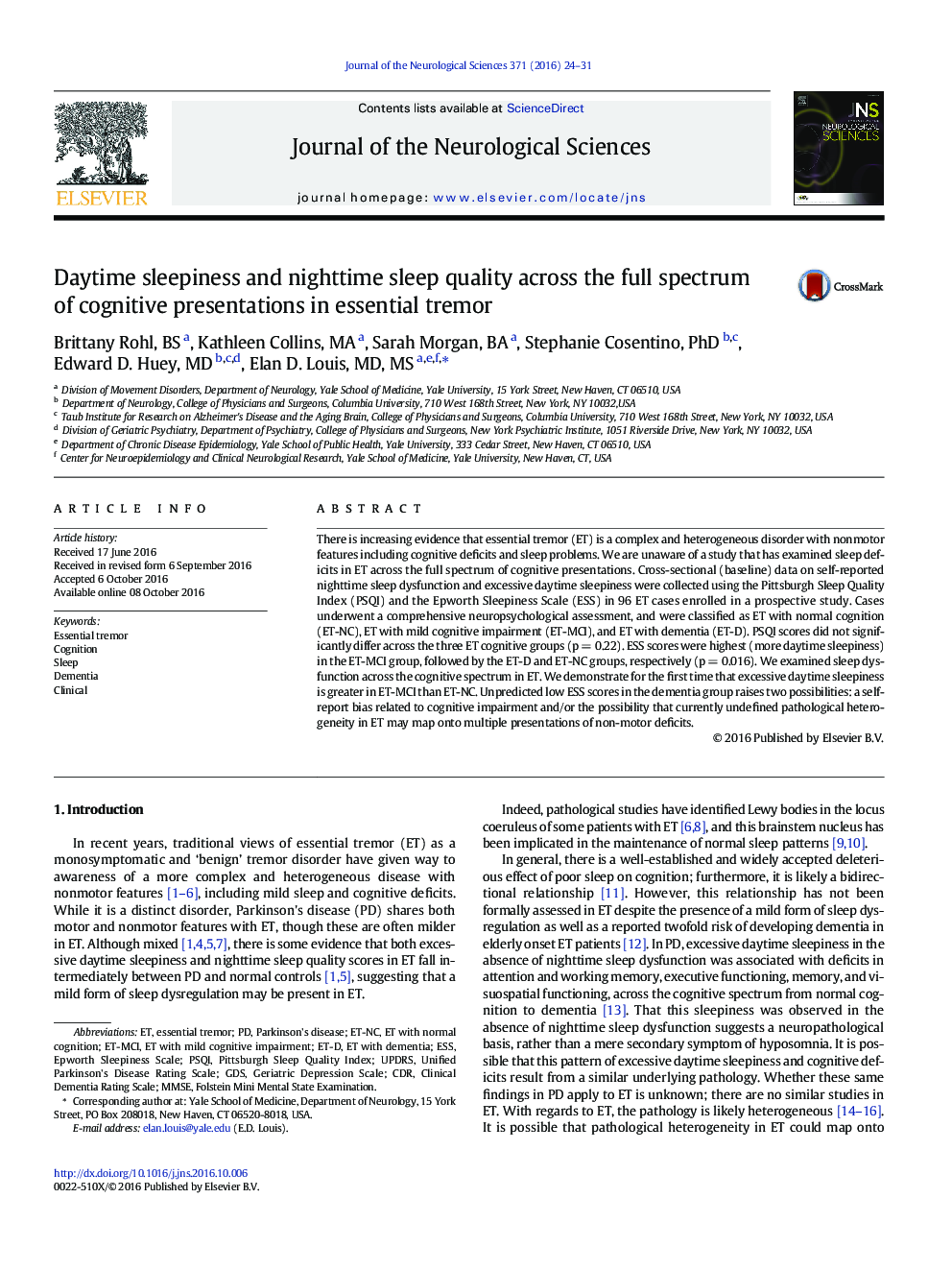| Article ID | Journal | Published Year | Pages | File Type |
|---|---|---|---|---|
| 5502784 | Journal of the Neurological Sciences | 2016 | 8 Pages |
Abstract
There is increasing evidence that essential tremor (ET) is a complex and heterogeneous disorder with nonmotor features including cognitive deficits and sleep problems. We are unaware of a study that has examined sleep deficits in ET across the full spectrum of cognitive presentations. Cross-sectional (baseline) data on self-reported nighttime sleep dysfunction and excessive daytime sleepiness were collected using the Pittsburgh Sleep Quality Index (PSQI) and the Epworth Sleepiness Scale (ESS) in 96 ET cases enrolled in a prospective study. Cases underwent a comprehensive neuropsychological assessment, and were classified as ET with normal cognition (ET-NC), ET with mild cognitive impairment (ET-MCI), and ET with dementia (ET-D). PSQI scores did not significantly differ across the three ET cognitive groups (p = 0.22). ESS scores were highest (more daytime sleepiness) in the ET-MCI group, followed by the ET-D and ET-NC groups, respectively (p = 0.016). We examined sleep dysfunction across the cognitive spectrum in ET. We demonstrate for the first time that excessive daytime sleepiness is greater in ET-MCI than ET-NC. Unpredicted low ESS scores in the dementia group raises two possibilities: a self-report bias related to cognitive impairment and/or the possibility that currently undefined pathological heterogeneity in ET may map onto multiple presentations of non-motor deficits.
Keywords
Related Topics
Life Sciences
Biochemistry, Genetics and Molecular Biology
Ageing
Authors
Brittany BS, Kathleen MA, Sarah BA, Stephanie PhD, Edward D. MD, Elan D. MD, MS,
